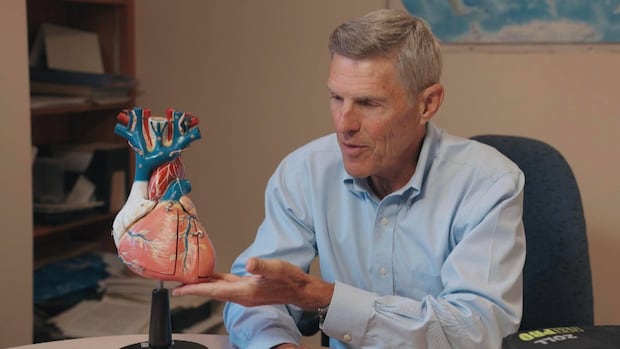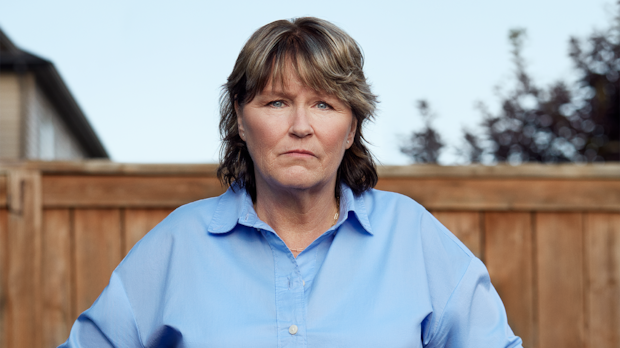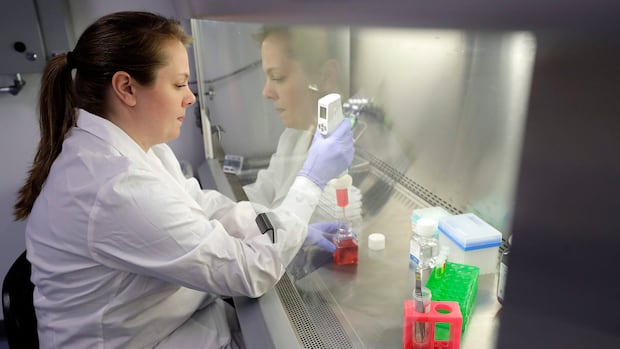When varsity rower Ruth McDonald competes, she’s thinking about pushing herself hard and winning the race. The potential of suffering a medical emergency — while always possible — is the last thing on her mind.
“Every sport, you have to be comfortable with pain and comfortable with getting uncomfortable,” she said. “So something like injury or having cardiac arrest is not something you have on your mind, because you’re so focused on working so hard and achieving the best results possible.”
Sudden cardiac arrests in female athletes are a rising concern for sports medicine experts because doctors say they’re realizing how little they know about the heart health of female athletes, and their risk level for the condition.
While rare, sudden cardiac arrests are a leading cause of death for young athletes. According to a Canadian study published in March, men are over 10 times more likely to experience a sports-related cardiac arrest than women.
But women, when their hearts suddenly stop, are less likely to survive, according to several studies.
Reasons unclear
Dr. Paul Dorian, who co-authored the Canadian study, says there aren’t clear explanations for the disparity between male and female athletes.
But he pointed to one problem: Cardiac arrests in male athletes are more likely caused by heart rhythm disturbances, like an arrhythmia, due to a hardening of the arteries.
“Think of it as a heart attack in waiting. So those are plumbing problems, which then cause an electric problem,” said Dorian, a cardiologist at Toronto’s St. Michael’s Hospital.
In female athletes, by contrast, cardiac arrests are often from a different cause, says Dorian: They’re more likely due to heart diseases from heritable causes, or which developed from viruses.
Another factor, Dorian says, is that women may not always realize when they are about to have a cardiac arrest. Whereas men are more likely to have the classic symptoms of an emergency, like chest pain or chest tightness, women are more likely to experience symptoms like fatigue, shortness of breath and exhaustion.
Another key factor that can affect whether someone survives or dies of a sudden cardiac arrest: how quickly bystanders react, says Dorian.
Bystanders tend to step in less frequently to resuscitate a woman, whether through CPR or putting the woman on an automated external defibrillator, also known as an AED.
Researchers don’t have a lot of data on why. It may be that some bystanders don’t recognize the symptoms in women, or they feel reluctant to perform chest compressions, or to remove a woman’s shirt and place the defibrillator pads on her chest.
Physiological differences
There are also differences between male hearts and female hearts — in size, electrical system and blood vessels, says Dr. Paula Harvey, a heart specialist and the head of medicine at Women’s College Hospital in Toronto.
“We are behind the game, so to speak, when it comes to understanding the biology of women’s hearts with respect to the impact of different types of sports and different types of stressors,” she said.
Some of the key questions she wants answers to: the best ways to screen female athletes for structural heart disease and electrical heart problems that could put them at risk — and the best ways to respond to somebody who has a cardiovascular complication or emergency while on the playing field.

Harvey is trying to fill in some of those blanks, researching how age and hormonal changes, like menopause, can affect women’s cardiac health.
Specifically, Harvey is studying female athletes who have stopped having periods and showing symptoms that resemble menopause, because they’re not eating enough calories to balance out all their training — and how the energy imbalance impacts heart health.
That can be hard on the cardiovascular system, suggests Harvey’s research, which she recently presented at the Female Athlete Conference in Boston. She thinks not enough athletes are aware of the problem, which she says can easily be corrected — and the symptoms reversed — by eating more.
“Even just a granola bar to increase that number of calories,” she said.
Dr. Steven Joseph, chief medical officer of Rowing Canada, also thinks there is much more to be learned about sex differences and risk factors for sudden cardiac arrest.
“We’re just starting to realize there are significant physiological differences,” he said. “A lot of the old studies were based on male athletes and they’re not transferable.”
Joseph is hoping there will be more research that could inform athletes and coaches on how to train safely — and manage risk factors.
Because — Harvey, Joseph and Dorian all agree — physical activity has so many benefits for overall health, not just cardiac health.
They just want everyone to be able to do it safely.







